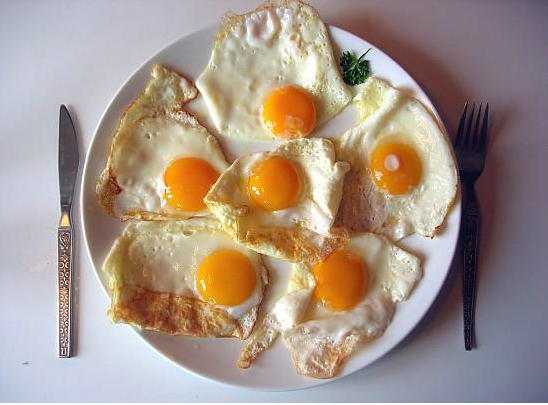 Scientists are investigating whether eating eggs may prevent memory loss and lower the risk of dementia.
Scientists are investigating whether eating eggs may prevent memory loss and lower the risk of dementia.
In the six-month U.S. study, half of the participants will have two eggs a day, and will be compared with a control group who won’t have eggs.
Both groups will be tested for memory, reasoning, verbal fluency and attention span – a decline in these is a major risk factor for the development of dementia later in life.
Eggs are one of the best sources of two antioxidants, lutein and zeaxanthin, which previous research suggests can improve cognitive function.
The researchers, from Tufts University in the U.S., expect there will be ‘a significant increase’ in the mental functioning in the group given eggs.
Super-laser targets ugly caesarean scars
Laser therapy is being tested as a way to reduce caesarean scarring. One in four births in this country is now by caesarean and the surgery can leave a prominent, raised or even painful scar across the abdomen.
Now, a clinical trial is looking at laser therapy to tackle this. The light is thought to trigger chemical reactions in the skin, which stimulates the growth of new tissue, as well as ‘remodelling’ the scar tissue.
The device being tested is six times more powerful than other types of lasers, and is said to penetrate four times deeper into the abdominal tissue, up to 4mm.
Women on the Danish trial at Aarhus University Hospital will have three treatments – scar thickness will be measured before and after.
Cabbage patch to soothe sore joints
Could covering your knee with cabbage ease sore joints?
Cabbage, which is shredded and mixed with warm water to form a poultice, has been used as a traditional remedy for joint pain and skin complaints.
Now, doctors are comparing the benefits of a cabbage poultice with diclofenac gel, an anti-inflammatory commonly used to ease joint pain.
Around 80 people with osteoarthritis of the knee will be given the cabbage dressing, the gel or their usual care, in the trial at Universitat Duisburg-Essen, Germany.
Just how cabbage might help is not clear, but it contains glutamine, a constituent of glucosamine – this compound occurs naturally in the body and plays a role in building cartilage.
Source: Daily Mail

